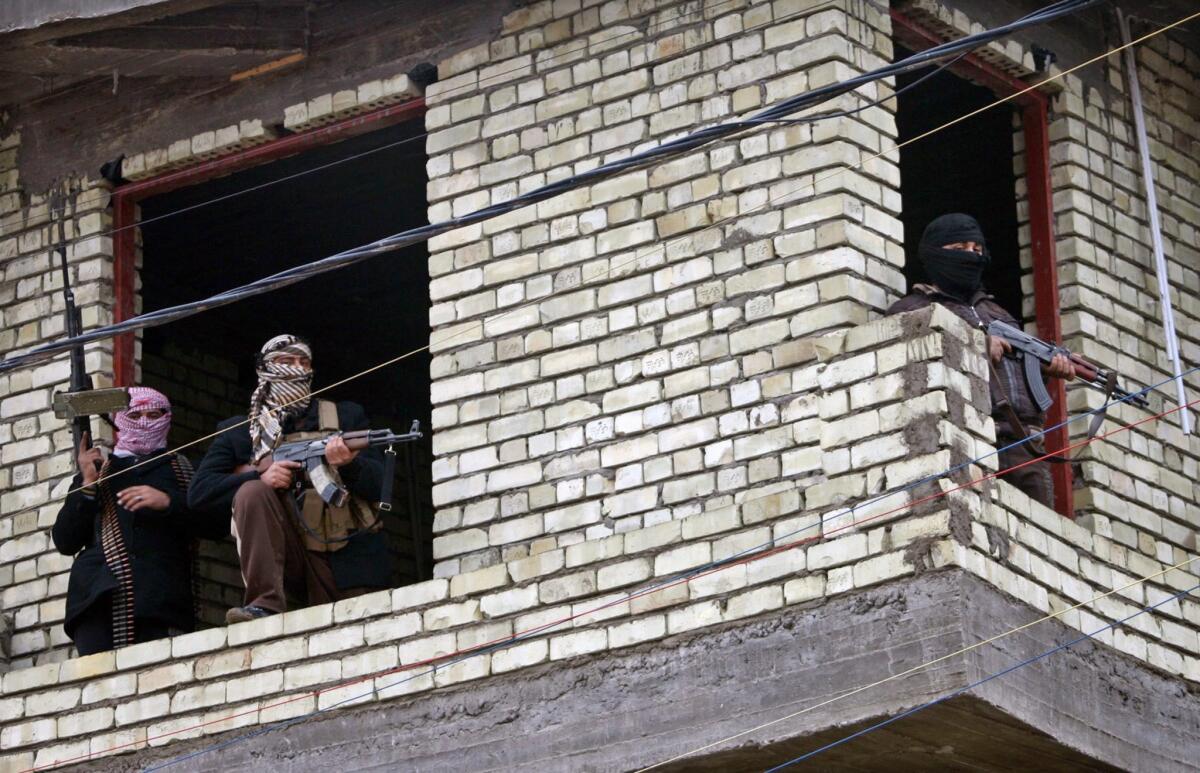It’s not ‘our’ Iraq anymore

- Share via
Gains by Al Qaeda-allied groups in Iraq — including in Fallouja, the site of a bloody U.S. offensive in 2004 — understandably anger Americans who lost loved ones in a “war of choice” that was supposed to secure democracy in that country. But the continued violence in Iraq doesn’t discredit the decision of the United States to withdraw troops, nor does it justify any new deployment.
Even now, the United States has an interest in Iraq’s future and seeks to influence events there. The Obama administration, with congressional support, has expedited the delivery of military equipment to the government of Prime Minister Nouri Maliki to be used against the Islamic State of Iraq and Syria, the Al Qaeda-affiliated group that seized large portions of Fallouja. Meanwhile, the administration appropriately has been urging Maliki, a Shiite Muslim who has alienated Iraq’s Sunni Muslims and dealt harshly with dissidents, to engage in political dialogue and respect human rights.
But the administration wisely has rejected calls for more direct involvement. The American people understandably have no appetite for military intervention in Iraq.
Former Secretary of State Colin Powell was right when he said, in connection with the U.S.-led invasion of Iraq, that “if you break it, you own it.” The invasion did “break” Iraq in the sense of toppling an authoritarian regime without ensuring that it would be followed by a stable new order. Having unleashed an unexpected insurgency, the U.S. felt obliged to deal with it, at a cost of thousands of American lives. But the statute of limitations on that obligation has run out, and when U.S. forces left in 2011, Iraqis were happy to see them go.
The experience of this country in Iraq remains deeply disillusioning and continues to provide fodder for political attacks. Republicans such as Sen. John McCain (R-Ariz.) insist glibly that President Obama is to blame for the current disorder because he didn’t push Maliki harder to accept a small residual U.S. force after the withdrawal. Democrats insist that the blame belongs to President George W. Bush, whose naive attempt to further a “freedom agenda” in Iraq unleashed ethnic and religious rivalries that had been suppressed by Saddam Hussein. Both arguments ignore the fact that U.S. “ownership” of events has ended.
In 2007, when he ordered a “surge” of U.S. forces, Bush said that victory in Iraq would take the form of “a functioning democracy that polices its territory, upholds the rule of law, respects fundamental human liberties and answers to its people.” Those remain noble goals, but if they remain elusive, it is not because of a lack of U.S. effort.
More to Read
Sign up for Essential California
The most important California stories and recommendations in your inbox every morning.
You may occasionally receive promotional content from the Los Angeles Times.













